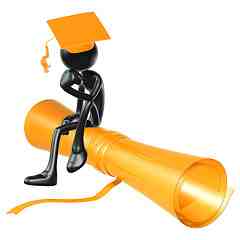Articles
A Glimmer of Hope for EYPs
Posted on August 17, 2011.The EPPE report (Sylva et al. 2004) concluded that the best quality settings had a graduate led workforce.
The Graduate Leader Fund (or Transformation Fund) was set up in 2006 to support settings in achieving this aim. The idea was that settings could ‘home grow’ a graduate, by supporting their studies at University, whilst still working in the setting, or to assist a setting to recruit a graduate.
This would then enable graduates to go on achieve to the Early Years Professional Status (EYPS) – the gold standard.
But has spending all this money (£555 million) achieved anything in the last 5 years?
In July 2011, the Department for Education (DfE) released the Evaluation of the Graduate Leader Fund, researched by an eminent team and supported by the CWDC, Oxford University and the National Centre for Social Research.
Because the EYPS is still in its infancy (although there are now 7,500 EYPs), the research has used EYPs who have achieved the Status for 6 to 24 months. The two main questions to be investigated were:
- Does having an Early Years Professional improve quality?
- If so, which aspects of practice (and of quality) are most closely associated with EYP status?
(Evaluation of the Graduate Leader Fund p. 16)
I’ve done a couple of small scale research projects to explore the same questions and have found it incredibly difficult to unravel the Status from the person (see ‘Value your EYP’ on this website).
Similarly it is impossible to ignore the environment in which the EYPs work, physical and emotional. If there is already an ethos of implementing improvements, an openness to changes and a strong team, then the EYP stands a much better chance of making a positive contribution.
In the Evaluation of the Graduate Leader Fund, Mathers et al. have chosen to use the ITERS-R, ECERS-E and ECERS-R Environmental assessment tools (available from Amazon) which neatly side steps some of the issues.
These are a method of quantifying the quality of the setting and one that I always recommend to settings who know that there is something not ‘quite right’ but can’t put their finger on it. These audit tools enable practitioners to put a fine tooth comb through their practice and environment to identify which parts are functioning well and which need closer monitoring.
There are a myriad of findings and analysis from all the information gathered over the two year life of the project, which have been categorised into – The impact of gaining EYPS; Other predictors of quality; Improving practice in settings; Factors affecting improvements and Parents’ views of improvements, qualifications and their involvement in their child’s learning.
I was particularly drawn to the impact of gaining the EYP Status, the key findings of which were that:
- Gains were seen in overall quality
- EYPS provided ‘added value’ over and above gaining a graduate in terms of overall quality
- Improvements related most strongly to direct work with children, such as support for learning, communication and individual needs
- EYPs were more influential on the quality of practice in their own rooms than on quality across the whole setting.
- There was little evidence that EYPs improved the quality of provision for younger children (birth to 30 months)
(pages 6 and 7 – Executive Summary)
In addition, it was found that few EYPs were working in baby rooms, which mirrors my own experiences with EYPs. It seems to be felt that EYPs are best used in pre-school. Maybe because they will be expected to talk to teachers, write leaving reports or liaise with multi-professional teams?
I would suggest this is an area ripe for research and discussion with settings. If this can be analysed successfully then EYPs may be used more effectively and efficiently in settings.
EYP networks have plenty of support in the Report: “EYPs valued having access to continuing professional development opportunities through EYP networks established within LAs. These networks provided the opportunity … to share best practice. Networks also provided additional training, for example on specific elements of provision.” (page 99) and “Local networks were seen as a valuable resource for training and for keeping up to date with new developments” (page 100) and “EYPs identified both CPD and the role of EYP networks as key facilitators for ongoing development.” (page 106).
This is very encouraging. Currently networks are struggling for funding and EYPs are having to justify their time away from the settings. This research clearly shows how valuable the benefits are.
In conclusion, I would strongly recommend anyone in childcare to access the report on the DfE website because I have only picked out a very few of the findings and their possible implications here. The report is thorough, interesting and very relevant – just as you would expect from these authors.
Now let’s hope the Coalition Government take the time to read and understand it.
References
Sylva, K. Melhuish, E. Sammons, P. Siraj-Blatchford, I. and Taggard, B. (2004) The Effective Provision of Pre-School Education (EPPE) Project: Final Report A Longitudinal Study Funded by the DfES 1997-2004
Mathers, S. Ranns, H, Karemaker, A. Moody, A, Sylva, K, Graham, J, and Siraj-Blatchford I. (2011) Evaluation of the Graduate Leader Fund Final report. Research Report DFE-RR144
Note
Since then, there have been a number of updates to the Standards, requirements and Government policy. The Early Years Professional Status has been replaced with a new Status – Early Years Teacher Status – which still has 8 Standards, but you now have to hold GCSE maths, English and science to do the course.
In addition, you have to pass the professional skills tests. You can find out more information from the Government website here
Image by Jenny


